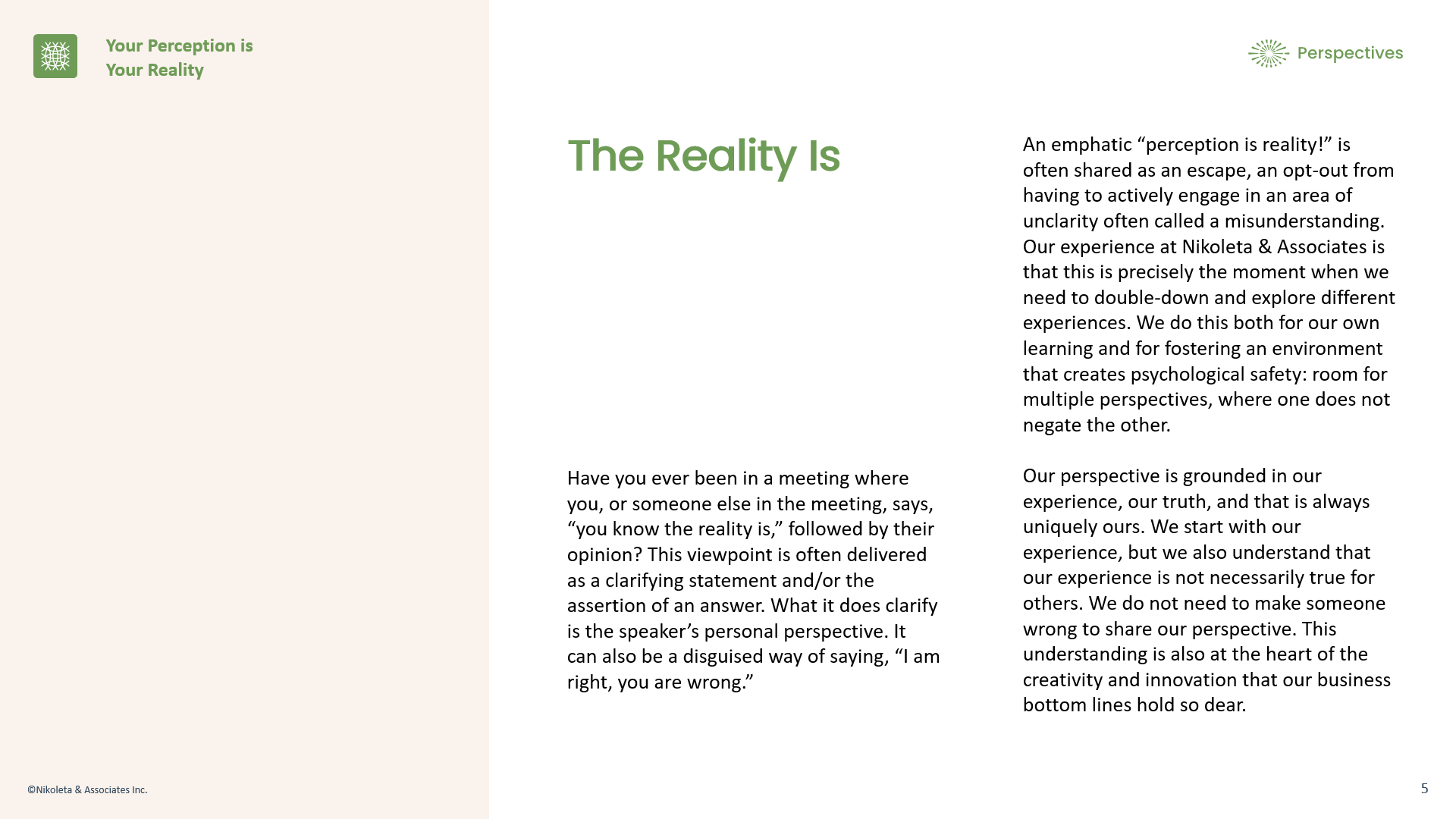Perspective
Your Perception is Your Reality


Our perception is our reality. This is the way it is for all of us, all the time. So, what does this mean in business?
There is no shared reality for any group, team, or organization we are part of. There are individual experiences that come together. There is also not a right or wrong way to see something.
With this knowledge, it is indeed a pleasant surprise that we manage to communicate despite knowing that we all see things as we are, rather than as they are. However, in our work with Nikoleta & Associates, we find that frustration often arises from unclarity or lack of understanding among teams and team members, sometimes even leading to guilt or blame. While we understand the frustration, our objective is to improve understanding so that the frustration can be contextualized.
Communication is inherently distorted.
This is fundamental and one of our core operating practices. We believe it is in a leader’s best interest to understand this. In part, so that they can shape environments that do not unintentionally fuel blame and guilt, or establish someone as right or wrong.
In a problem-solution-oriented, right-answer-oriented workplace, time for reflection and learning is necessary to develop the capability to facilitate such dynamics. Five individuals, five different meetings. When we are in a room, we are all having different experiences. We remember different things; we walk out with different take-aways. Our experience is always unique to us. Although this is true and can seem challenging to manage, most of the time, the convergence of our individual experiences generally brings us close enough together that we can move forward.
Context defines meaning.
The business context has tools and processes to help facilitate clarity, such as roles, meeting recordings, etc. It is also the role of the team leader to understand that each person is having a unique experience, especially when performance pressure and the need to appear competent converge.
Circling back at the end of a meeting or offline after a meeting is also something a team leader can do. Given the nature of the hybrid way of working and the increased level of uncertainty that has become more tangible in our lives with COVID-19, the need to mine our learnings has become even more evident. Part of your learning as a team leader involves understanding how effective your meetings are, and conversing with team members will help you garner the input you need to adjust.
The Reality Is
Have you ever been in a meeting where you, or someone else in the meeting, says, “you know the reality is,” followed by their opinion? This viewpoint is often delivered as a clarifying statement and/or the assertion of an answer. What it does clarify is the speaker’s personal perspective. It can also be a disguised way of saying, “I am right, you are wrong.”
An emphatic “perception is reality!” is often shared as an escape, an opt-out from having to actively engage in an area of unclarity often called a misunderstanding. Our experience at Nikoleta & Associates is that this is precisely the moment when we need to double-down and explore different experiences. We do this both for our own learning and for fostering an environment that creates psychological safety: room for multiple perspectives, where one does not negate the other.
Our perspective is grounded in our experience, our truth, and that is always uniquely ours. We start with our experience, but we also understand that our experience is not necessarily true for others. We do not need to make someone wrong to share our perspective. This understanding is also at the heart of the creativity and innovation that our business bottom lines hold so dear.















